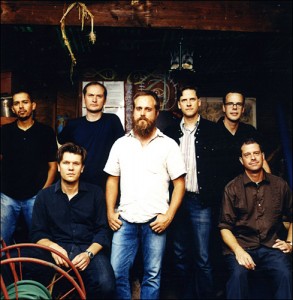 Bob Dylan has spent his entire 49-year recording career at Columbia records (minus a couple of releases in the early 1970s on Asylum Records). These days, that kind of loyalty to record labels seems more and more rare. Artists today tend to often go from label to label, seeking more money, creative freedom, the backing of a major label or for numerous other reasons. In the DIY music culture the Internet has created, many opt for the boundless freedom offered by releasing an album independently.
Bob Dylan has spent his entire 49-year recording career at Columbia records (minus a couple of releases in the early 1970s on Asylum Records). These days, that kind of loyalty to record labels seems more and more rare. Artists today tend to often go from label to label, seeking more money, creative freedom, the backing of a major label or for numerous other reasons. In the DIY music culture the Internet has created, many opt for the boundless freedom offered by releasing an album independently.
On the other hand, indie artist Iron & Wine (the moniker of folk singer Sam Beam) left his long-time indie label home, Sub Pop, when he released his latest, Kiss Each Other Clean, on Warner Brothers records last week. Beam summed up his decision simply in an interview with Pitchfork Media: “It seemed like a good idea. It’s not like Sub Pop was doing anything wrong—they’re some of my best friends—but I think change is good.”
At the heart of record label matters is how good of a fit the artist and label are together. Conor Oberst will release his latest album again under the name Bright Eyes (The People’s Key, February 15) for the Saddle Creek label he co-founded after a hiatus in which he released two albums under his own name for the Merge record label. No matter what prompts a label change, contracts must be written that will please both sides. Dylan’s ill-fated digression to Asylum can be a testament to this fact.

